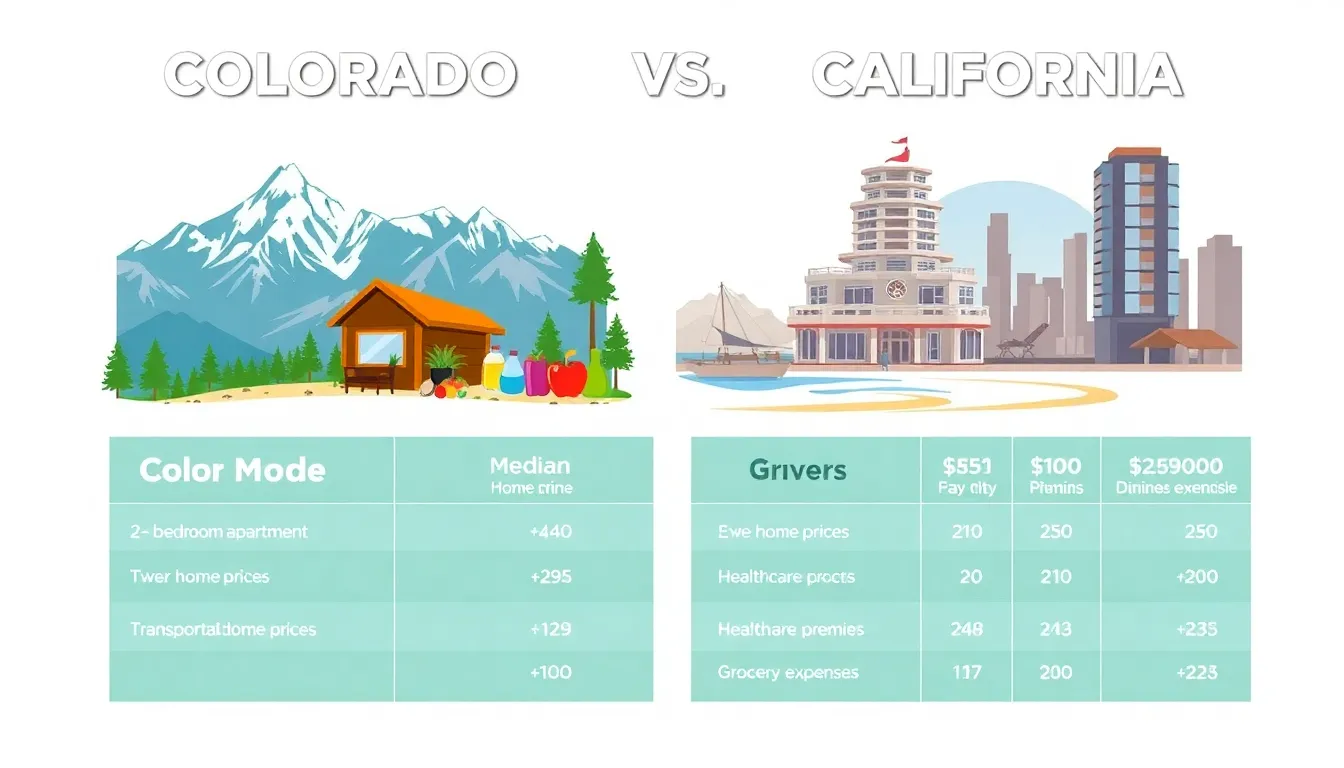Table of Contents
ToggleThinking about moving abroad? It’s not just about packing your bags and waving goodbye to the neighbors. The overseas cost of living can be a real eye-opener. Imagine sipping espresso in a Parisian café or lounging on a beach in Bali, but then reality hits—those lattes and sun-soaked afternoons come with a price tag.
Understanding Overseas Cost of Living
Understanding the overseas cost of living is crucial for anyone considering life abroad. It encompasses all financial aspects that affect daily life, from housing to transportation and groceries.
Definition and Importance
The overseas cost of living refers to the amount required to maintain a certain standard of living in a different country. Knowing this metric helps individuals plan budgets accurately and avoid financial surprises. It impacts various choices, including housing, schooling, and lifestyle. Recognizing the cost of living also aids in comparing different locations and assessing potential savings. Individuals frequently overlook this information, which can lead to unrealistic expectations regarding expenses.
Factors Influencing Cost of Living
Several factors influence the cost of living in different countries. These include housing markets, local taxes, and inflation rates. Exchange rates also play a significant role, as they affect purchasing power. Different regions possess unique costs; urban areas generally exhibit higher expenses than rural ones. Additionally, lifestyle choices like dining out versus cooking at home significantly impact monthly budgets. Understanding these factors assists individuals in making informed decisions about where to live and work.
Comparing Different Countries
Understanding the overseas cost of living requires analyzing various countries. Certain regions stand out as high-cost or low-cost alternatives for expats.
High-Cost vs. Low-Cost Countries
High-cost countries often include places like Switzerland, Norway, and Singapore. Residents face steep housing prices, elevated transportation fees, and higher grocery costs. In contrast, low-cost countries like Mexico, Thailand, and Portugal offer affordable living. Monthly rents in these locations typically start at $300, making them attractive for those on a budget. A meal at a local restaurant in Thailand might only cost $3, showcasing significant differences. Evaluating both extremes helps individuals align their wallet with lifestyle preferences.
Emerging Destinations
Emerging destinations like Vietnam, Colombia, and the Philippines present appealing options for expats. Each country boasts a low cost of living while providing rich cultural experiences. For instance, Vietnam’s vibrant city life combines affordability with modern amenities. Rent in Ho Chi Minh City averages around $500 per month. In comparison, Colombia’s Medellín offers excellent weather and reasonable prices, with public transportation around $1 per ride. Selecting an emerging destination can lead to financial benefits while enjoying diverse experiences.
Personal Expenses to Consider
Understanding personal expenses is vital when moving overseas. Key aspects such as housing costs and daily necessities significantly shape monthly budgets.
Housing and Rent
Housing constitutes a primary expense for expatriates. Monthly rent varies widely based on location. In high-cost countries like Singapore and Switzerland, rents can exceed $2,500 for a one-bedroom apartment. Conversely, in low-cost regions like Vietnam or Portugal, monthly rents might begin at $300. Additionally, urban areas often command higher prices than rural settings. Evaluating available housing options, whether furnished or unfurnished, can also influence overall spending patterns. Individuals benefit from researching market trends to identify the best neighborhoods that suit their financial situation.
Daily Necessities
Daily necessities encompass food, transportation, and healthcare. Grocery prices differ significantly across countries. For example, a meal at a mid-range restaurant may cost around $20 in expensive cities while averaging only $5 in more affordable areas. Public transportation expenses also vary; a monthly pass might cost $100 in high-cost nations and only $30 elsewhere. Healthcare often requires consideration as well, with insurance rates or out-of-pocket costs varying greatly. Assessing these daily expenses ensures that individuals can maintain their desired lifestyle without overspending.
Strategies for Managing Overseas Costs
Managing costs overseas requires intentional strategies for effective budgeting and saving. Understanding local prices and personal expenses helps maintain financial stability while living abroad.
Budgeting Techniques
Creating a detailed budget aids in managing monthly expenses. Start by listing all sources of income to establish a baseline. Next, categorize essential expenditures such as housing, food, and transportation. Researching local prices provides clarity on how much to allocate for these categories. Regularly tracking spending against the budget helps identify areas for adjustment. Flexible budgeting allows for changes in income or expenses. Utilizing budgeting apps simplifies tracking while providing helpful insights into spending habits.
Saving Tips for Expats
Finding ways to save money while living abroad enhances financial security. Consider shopping at local markets, where prices for fresh produce often fall significantly compared to grocery stores. Opt for public transportation instead of taxis to reduce travel costs substantially. Cooking at home offers considerable savings, especially in areas with high dining out expenses. Establishing a local bank account can minimize foreign transaction fees and improve currency exchange rates. Joining expat communities often reveals additional tips for cost-effective living tailored to specific regions.
Navigating the overseas cost of living requires careful consideration and planning. By understanding the various factors that influence expenses, individuals can make informed decisions about where to relocate. It’s essential to align financial capabilities with lifestyle preferences to avoid unexpected financial burdens.
Implementing effective budgeting strategies and being mindful of daily expenses can significantly enhance one’s experience abroad. Embracing local cultures while managing costs ensures a fulfilling and sustainable lifestyle. Ultimately, a well-researched approach to the cost of living can transform a daunting move into an exciting adventure.







